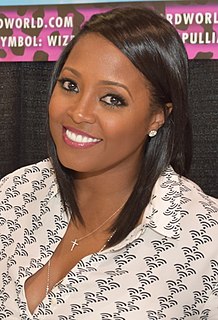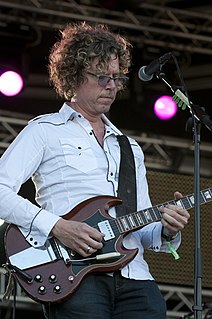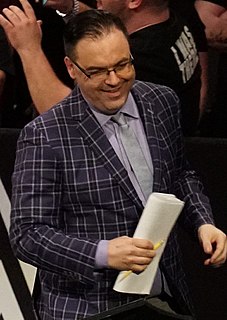A Quote by Graham Swift
As a novelist, I suppose I can say that I'm highly articulate. But I know, as a person, in other ways, I'm not always articulate. I think we are all, from time to time, inarticulate, at some level, about some things.
Related Quotes
The average person might articulate them differently, but we all think about interpersonal relationships in one way or another. Writers just express that in different ways and capture it in different ways. To some degree, we're all thinking about the same things. It's the zeitgeist. The trick, in a way, as a writer, is to hope that your interests in some sense link up with the culture around you.
In the end, the thing that's important about free expression is that it's the right from which all other rights are derived. If you can't articulate ideas and if you can't articulate critiques of other peoples' ideas, then you're powerless. What always increases the power of an authoritarian regime is whether it can successfully prevent people from expressing themselves.
From the writer's point of view, critics should be ignored, although it's hard not to do what they suggest. I think it's unfortunate to have critics for friends. Suppose you write something that stinks, what are they going to say in a review? Say it stinks? So if they're honest, they do, and if you were friends you're still friends, but the knowledge of your lousy writing and their articulate admission of it will be always something between the two of you, like the knowledge between a man and his wife of some shady adultery.
I'm especially interested in what I call practitioner criticism, which is when people who practice an art form start writing about it on blogs. I think that's an immensely important development. I want to see much, much more of that. People who make music who are verbally articulate. And not all musicians are verbally articulate. But those who are should be encouraged to write about what they do and their perception of what other people do. It makes the discourse smarter.
When you have a lot of time, when you're not working a full-time job, you have a lot of time to question things and think about things. Some of it's about romantic relationships, some of it's about drugs, about religion, about this mass of humanity traveling through life doing all this crazy stuff, not really knowing why or for what.
One of the things that is always difficult about a collaboration is that you don't necessarily find the same thing funny. And so the challenge becomes, how do you tell the other person that you don't think something's funny? The best collaborations tend to be when you are willing to be told that. But there's also ego involved, and so there's a lot of frustration in knowing that you're writing something, and the other person, on some level, needs to think that it's funny.
I suppose we think euphemistically that all writers write because they have something to say that is truthful and honest and pointed and important. And I suppose I subscribe to that, too. But God knows when I look back over thirty years of professional writing, I'm hard-pressed to come up with anything that's important. Some things are literate, some things are interesting, some things are classy, but very damn little is important.



































